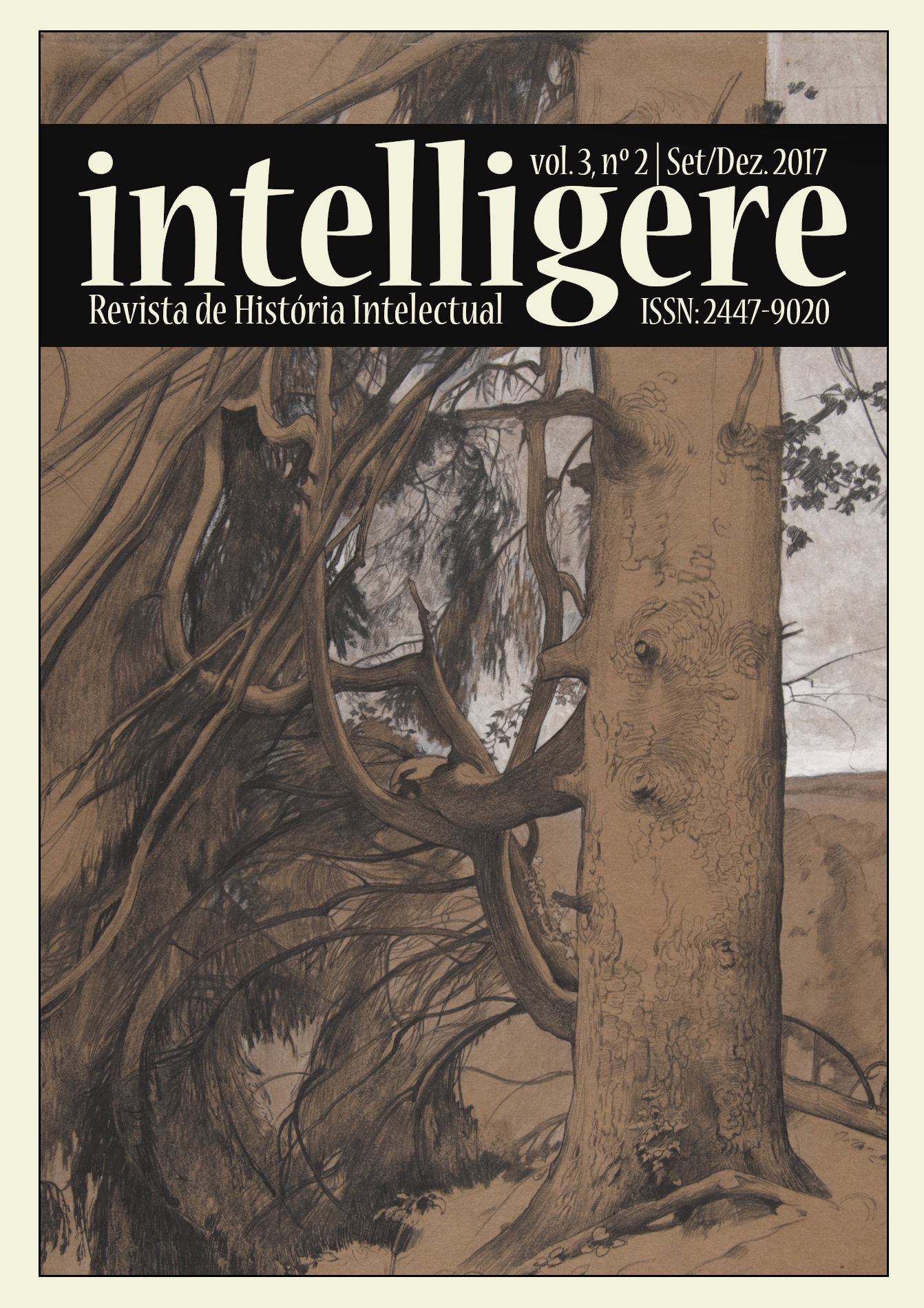Rüsen’s Response to the Crisis of Historicism
DOI:
https://doi.org/10.11606/issn.2447-9020.intelligere.2017.124660Palavras-chave:
Jörn Rüsen, Crisis of HistoricismResumo
Although Rüsen only discusses the crisis of historicism explicitly in his work occasionally, his general perspective on historical knowledge can be interpreted as a response to the crisis. Different responses to the crisis of historicism correspond to different interpretations of its main problems. In order to specify Rüsen’s response, a number of aspects of his perspective are pointed out as solutions to such problems. Indirectly, the analysis discloses problems that any plausible attempt to come to terms with the crisis of historicism ought to handle. By identifying differences to other contemporary responses to the crisis of historicism, the continuing relevance of Rüsen’s approach is demonstrated.
Downloads
Referências
Ankersmit, Frank, ”The Necessity of historicism”, Journal of the Philosophy of History, 4 (2010), 226–240.
Iggers, Georg, The German Conception of History. The National Tradition of Historical Thought from Herder to the Present (Wesleyan University Press, 1968), German transl.: Deutsche Geschichtswissenschaft. Eine Kritik der traditionellen Geschichtsauffassung von Herder bis zur Gegenwart (München: dtv, 1971).
Mannheim, Karl, ”Historismus”, in Wissenssoziologie. Auswahl aus dem Werk. Neuwied: Luchterhand 1970, 246–307. Orig. published in Archiv für Sozialwissenschaft und Sozialpolitik, 52 (1924) H.1, 1–60.
Mommsen, Wolfgang, Die Geschichtswissenschaft jenseits des Historismus (Düsseldorf: Droste, 1971).
Paul, Herman, ”A Collapse of Trust: Reconceptualizing the Crisis of Historicism”, Journal of the Philosophy of History, 2 (2008), 63–82.
Paul, Herman, ”Hayden White and the Crisis of Historicism”, in Re-figuring Hayden White, eds. Frank Ankersmit, Ewa Dománska, Hans Kellner (Stanford: Stanford University Press, 2009), 54–73.
Popper, Karl, The Poverty of Historicism (Routledge, 1957).
Rüsen, Jörn, Begriffene Geschichte. Genesis und Begründung der Geschichtstheorie J. G. Droysens (Paderborn: Ferdinand Schöningh, 1969).
Rüsen, Jörn, Für eine erneuerte Historik. Studien zur Theorie der Geschichtswissenschaft (Stuttgart-Bad Cannstatt: Froomann-Holzboog, 1976).
Rüsen, Jörn, Historische Vernunft. Grundzüge einer Historik I: Die Grundlagen der Geschichtswissenschaft (Göttingen: Vandenhoeck & Ruprecht, 1983).
Rüsen, Jörn, ”Die Krise des Historismus in unzeitgemäßer Erneuerung – Friedrich Meineckes »Entstehung des Historismus«”. In Rüsen, Jörn, Konfigurationen des Historismus (Frankfurt am Main: Suhrkamp, 1993), 331–356.
Rüsen, Jörn, Historische Orientierung. Über die Arbeit des Geschichtsbewußtseins, sich in der Zeit zurechtzufinden (Köln: Böhlau, 1994).
Rüsen, Jörn, ”Geschichte als Sinnproblem”. In Rüsen, Jörn, Zerbrechende Zeit. Über den Sinn der Geschichte (Köln: Böhlau, 2001), 7–42.
Jörn Rüsen, Kultur macht Sinn. Orientierung zwischen Gestern und Morgen (Köln: Böhlau, 2006).
Troeltsch, Ernst, Der Historismus und seine Probleme. Erstes Buch: Das logische Problem der Geschichtsphilosophie. Kritische Gesamtausgabe, Bd. 16 (1–2), ed. Friedrich Wilhelm Graf (Berlin/New York: De Gruyter, 2008 [orig. 1922]).
Wittkau, Annette, Historismus. Zur Geschichte des Begriffs und des Problems (Göttingen: Vandenhoeck & Ruprecht, 1992).
Downloads
Publicado
Edição
Seção
Licença
Autores que publicam em Intelligere concordam com os seguintes termos:
- Autores mantém os direitos autorais e concedem à revista o direito de primeira publicação, com o trabalho simultaneamente licenciado sob a Licença Creative Commons Attribution que permite o compartilhamento do trabalho com reconhecimento da autoria e publicação inicial nesta revista.
- Autores têm autorização para assumir contratos adicionais separadamente, para distribuição não-exclusiva da versão do trabalho publicada nesta revista (ex.: publicar em repositório institucional ou como capítulo de livro), com reconhecimento de autoria e publicação inicial nesta revista.
- Autores têm permissão e são estimulados a publicar e distribuir seu trabalho online (ex.: em repositórios institucionais ou na sua página pessoal), com reconhecimento da autoria e publicação inicial nesta revista.




